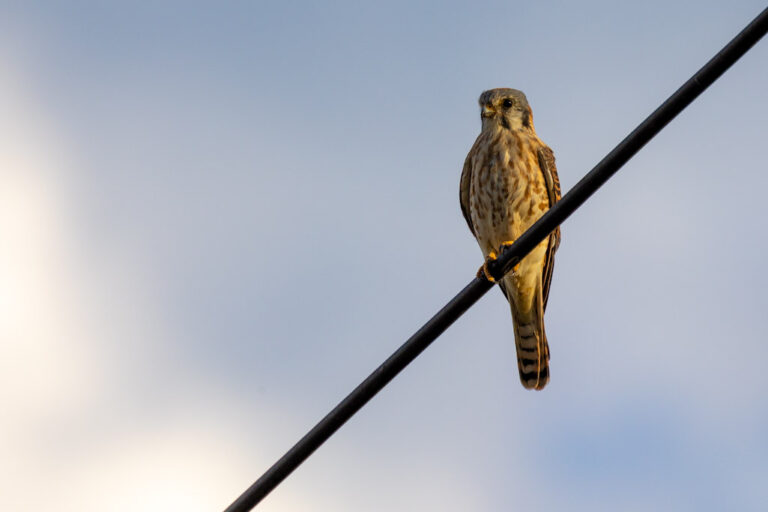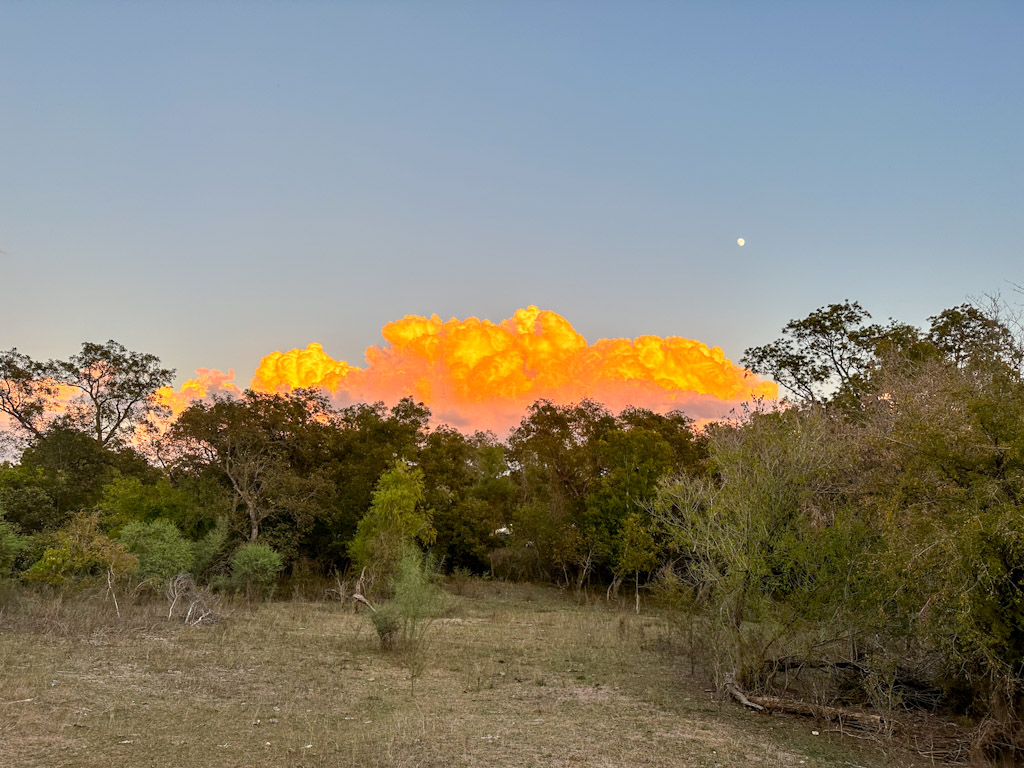
I have always been a morning person and usually bird when it’s bright and early. Typically, I start around 8 AM but this time I wanted to try out birding in the evening. Birds are most active when the sun rises and right before it sets.
An hour before sunset I arrived at my favorite park to see what birds I could find. Before I even got out of my car and turned on my camera I could hear the calls of several birds: Killdeer, House Finch, and a Northern Mockingbird.
Encounter with a tiny falcon
Embarking down the hill along the trail I kept an eye and ear out for passersby. Usually the sun faces me as I descend the hill but at sunset it was behind me making an ideal glow for photos. The first notable bird was perched on a power line flanking the trail. It surveyed the field for a meal and watched closely as I slowly approached. The Americas’ smallest falcon, the American Kestrel, is a frequent visitor to my local park and it is always a treat to watch. Late last year I witnessed a Kestrel hovering midair by flapping super fast. It does this as a technique to have an ideal vantage point to spot prey.
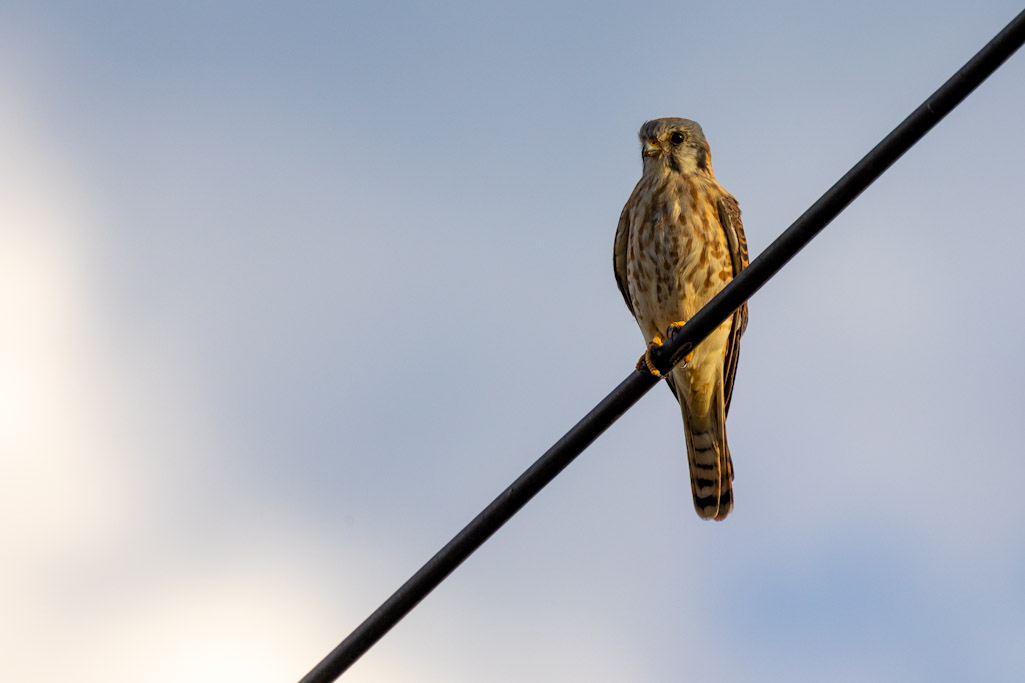
A butter butt warbler
As I made my way through the trees at the bottom of the hill, the Merlin app picked up a Yellow-rumpled Warbler. Looking around, I spotted the warbler and took note of its white throat. I learned this year that there are two variations of this bird. There is the “Myrtle” variation of Eastern U.S. with a white throat. Then there is the “Audubon’s” variation found in the Western U.S. with a yellow throat. I looked back at my photos from when I lived in California and, sure enough, the ones I snapped all had yellow throats.
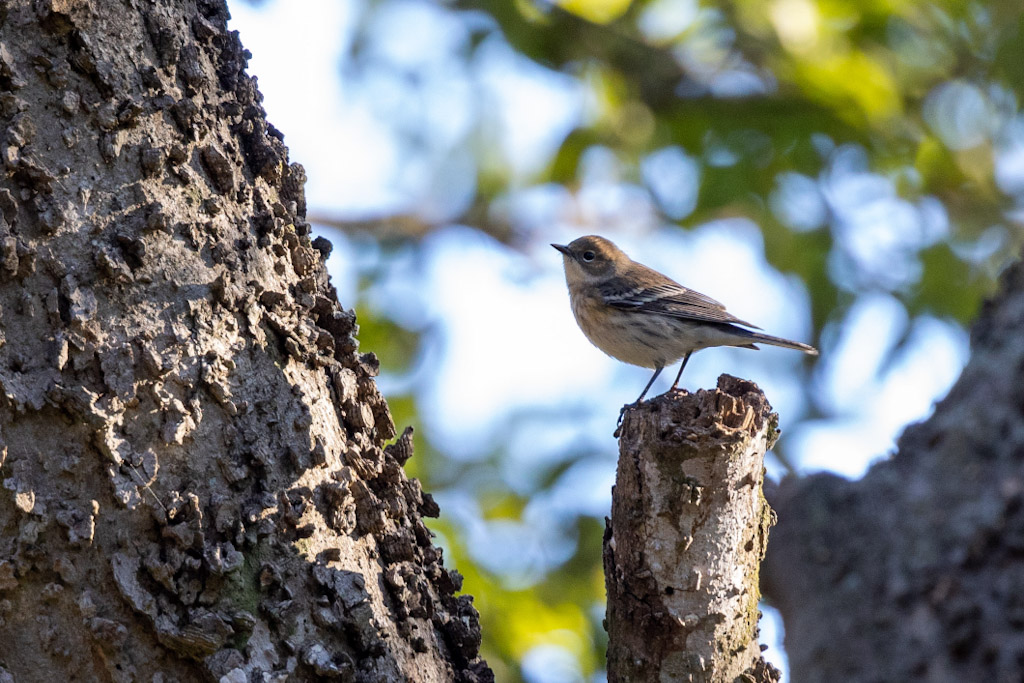
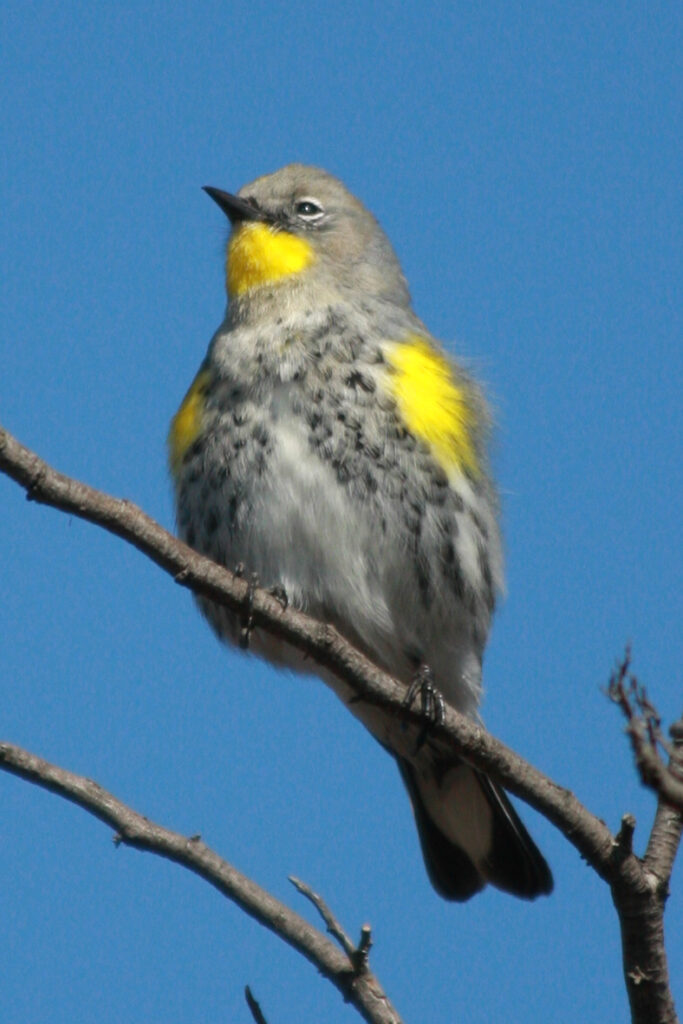
Caw, caw, caw
I know this is a basic, common bird to many people, found in huge numbers in many parts of the U.S., but the American Crow isn’t very populous in San Antonio. I see them seldomly and only one to three crows at a time. I imagine another black bird, the Great-tailed Grackle, which is ubiquitous in Texas perhaps competes with this bird for resources. But who knows why certain birds are more common in specific regions of the country. It may be due to climate and movement of the species over many, many years. I didn’t actually see the crows, but I heard at least three.
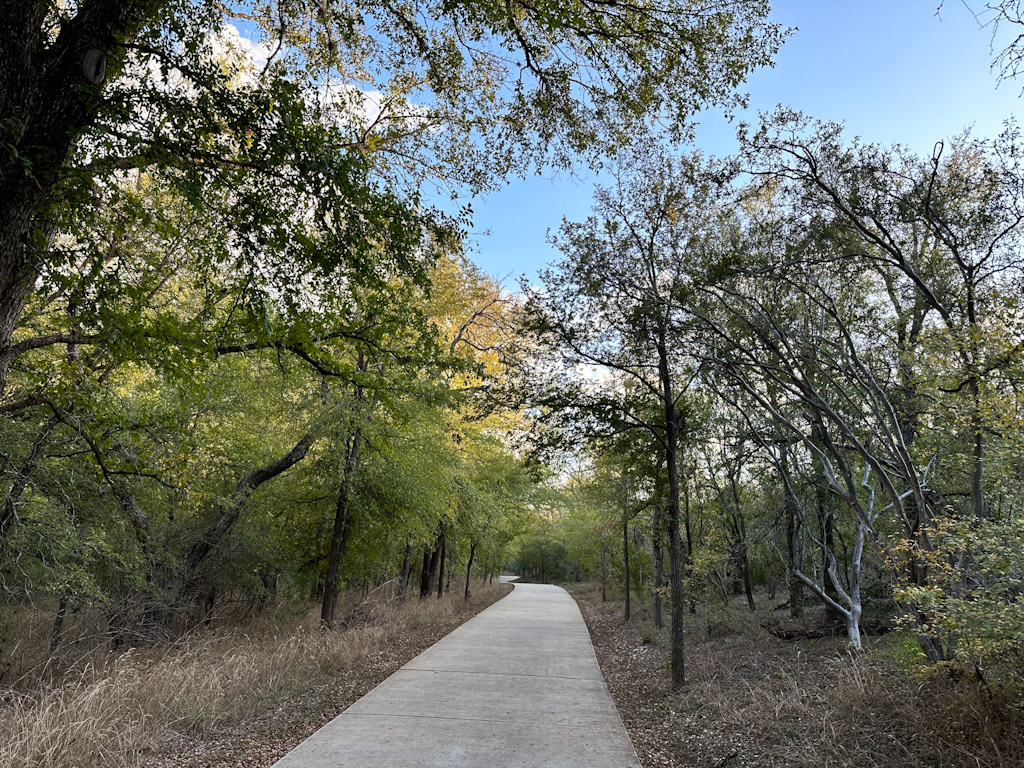
Wrens using their outside voice
Carolina Wrens are a given at the park anytime I visit, but another Wren I see or hear sometimes at the park made a few appearances this evening. I saw House Wrens on three occasions making their calls in the shrubbery. Unfortunately none of them cooperated for a photo, but their presence was nice nonetheless.
Two new birds appear!
Last weekend I was happy to get a great view of the Ruby-crowned Kinglet. It was special to me at the time because I recently watched the first season of the new Harriet the Spy on Apple TV+. In episode seven, Harriet and her mother visit Central Park to participate in a birding competition. The bird they are after is, of course, the Ruby-crowned Kinglet. So, seeing this bird right after watching the show made me appreciate it so much more.
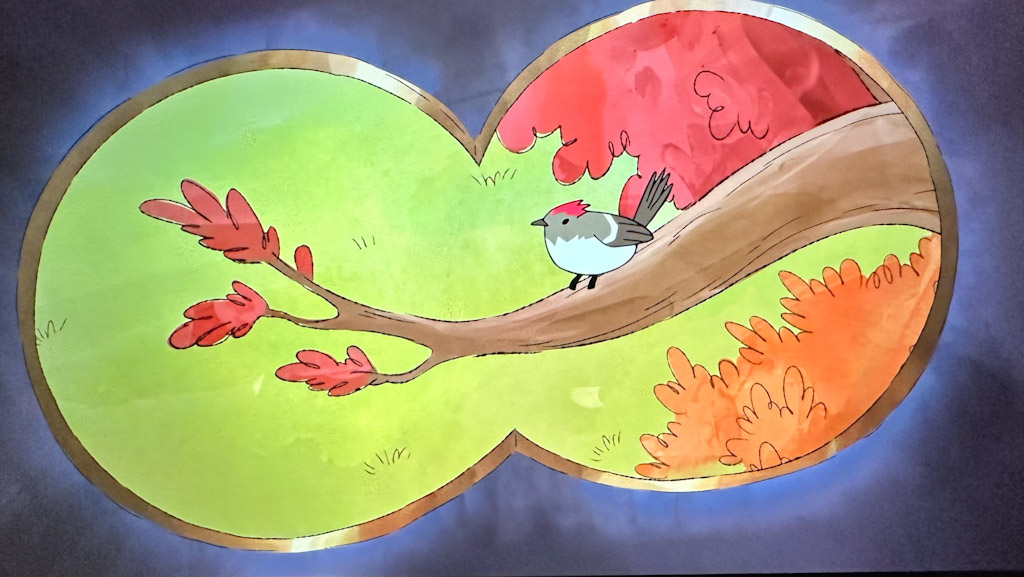
This is all to say I saw another kind of Kinglet today, the Golden-crowned Kinglet. It only made a brief appearance before it flew into the forest.
Another bird has been on my list to see or hear at this park, the Hermit Thrush. I knew it can be found in the park, as others have reported it. I picked up the clear call of the thrush emanating from somewhere in the trees.
Birding at twilight is worth it
All in all, I would definitely try birding in the evening again. It came with the benefit of cooler temperatures and a nice view of the sunset.
| Species | Count |
|---|---|
| Killdeer | 1 |
| Northern Flicker | 2 |
| American Kestrel | 1 |
| Eastern Phoebe | 2 |
| Blue Jay | 1 |
| American Crow | 3 |
| Golden-crowned Kinglet | 4 |
| House Wren | 6 |
| Carolina Wren | 1 |
| European Starling | 1 |
| Northern Mockingbird | 1 |
| Hermit Thrush | 1 |
| House Finch | 6 |
| Lesser Goldfinch | 1 |
| White-crowned Sparrow | 1 |
| Great-tailed Grackle | 1 |
| Yellow-rumped Warbler | 1 |
| Northern Cardinal | 12 |
| Total | 46 (18 species) |
